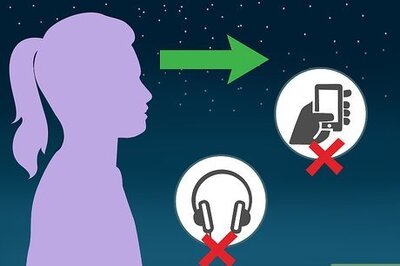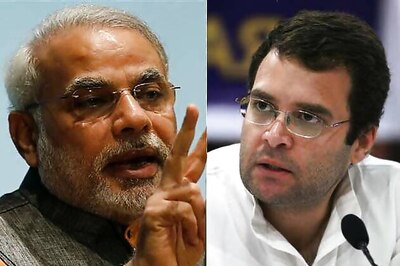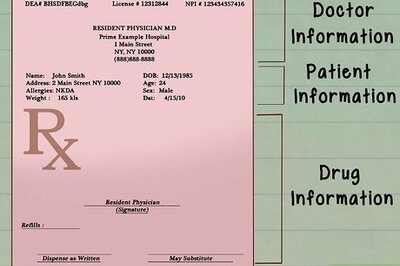
views
The nationwide lockdown imposed in March to curb the spread of coronavirus resulted in a massive fall in hospitalisations in India, with cancer treatment and institutional deliveries being among the most severely affected.
An analysis done by the National Health Authority showed a 64 per cent decline in oncology services, while institutional child deliveries fell by 26 per cent. The survey, called PM-JAY Under Lockdown: Evidence on Utilization Trends, was from January 1 to June 2 and included a large portion of the lockdown period.
The report, seen by News18, shows that access to essential services was a major problem during the first 10 weeks of the lockdown.
The average weekly claim volumes under the Ayushman Bharat scheme during these ten weeks were 51 per cent lower than the weekly average observed during the twelve weeks prior to the lockdown. The decline in claim value was even steeper, says the report.
“There was wide variation in claim volume trends across states, with the steepest declines (over 75 per cent) in Assam, Maharashtra and Bihar, while much smaller declines (about 25 per cent or less) were observed in Uttarakhand, Punjab and Kerala,” it reads.
Among demographic groups, women, younger and older populations (under 20 and over 60) reduced their utilization by more than men, young adults or the middle-aged.
Speaking to News18, Dr Soumya Swaminathan, chief scientist of the World Health Organisation, acknowledged that setback to delivery of these services will have a ripple effect.
“Apart from people dying due to Covid-19, we do not want to see people dying due to other diseases, like cardiovascular diseases, strokes, tuberculosis because people did not get the services they needed at the time. It is going to need some strategic planning and investment,” Swaminathan said.
There was a small but perceptible shift in utilization of Ayushman Bharat funds from public to private hospitals, with several possible explanations for this trend.
Among procedures, planned surgeries such as cataract operations and joint replacements suffered a decline of over 90 per cent, while hemodialysis declined by only 6 per cent. There was also a sharp fall in cardiovascular surgeries. Of particular concern are significant declines in admissions for child delivery and cancer care.
The report says that the reason for the decline was that hospitals were preoccupied with Covid-19 preparations or caseloads resulting in fewer resources for non-Covid-19 cases. This may be particularly relevant in public hospitals, which have been the primary focus of the policy response, and could extend to activities such as submitting pre-authorization requests or claims documents as required under Ayushman Bharat.
Private hospitals possibly reduced services out of fear among health workers that they will become infected or among owners that their business outlook will be jeopardized if they are perceived to be treating Covid-19 patients.
On the demand-side, beneficiaries of the government scheme might delay or forego treatment due to fear of infection at a hospital, they may not be able reach hospitals due to public transport shutdowns and mobility constraints, or the nascent economic crisis may affect financial considerations related to seeking care.
Speaking to News18, health activist and lawyer Ashok Agarwal, who works with needy patients, says this dip is not least surprising. Patients were repeatedly turned away by hospitals and were forced to leave for their villages.
“Many patients are also fearful. This does not mean that the tuberculosis is no more a problem in India,” he said, adding that the system is ignoring such patients. “Both Covid and non-Covid patients deserve adequate care and attention,” he said.
The fall in childbirth claims was also quite consistent across both public and private hospitals, the report said. There was a nearly 80 percent decline during the early lockdown in claim volumes for relatively common but higher-cost cardiovascular surgery procedures, such as PTCA/stents and CABG/bypass
The report concludes that it is possible that intermittent tightening and loosening of pandemic suppression measures will be necessary for many months to come. Ensuring that these have the least possible impact on key health programs will be an ongoing challenge that merits continued close monitoring.




















Comments
0 comment